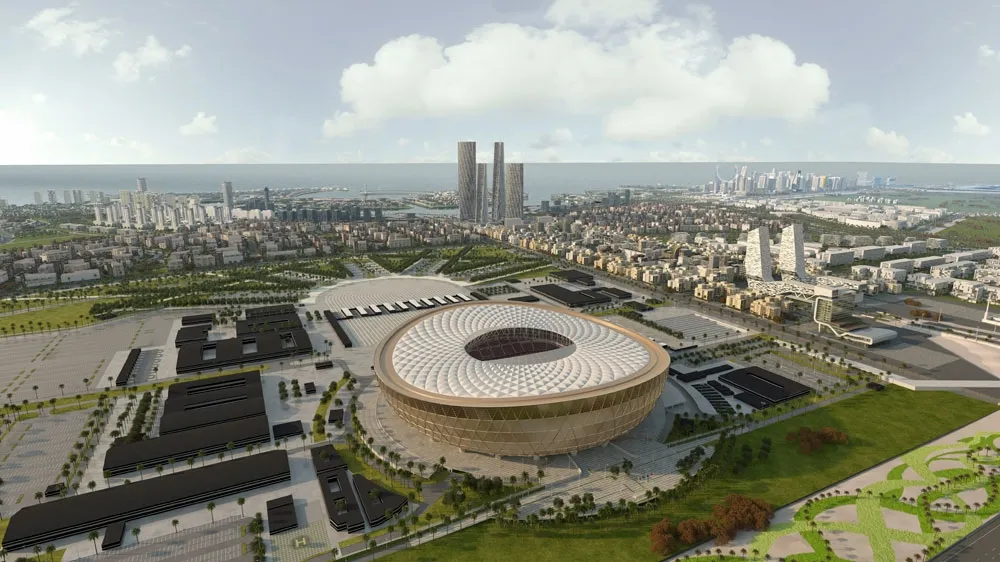Qatar FIFA World Cup legacy continues to shine long after the final whistle was blown in December 2022. What was once viewed as a bold and ambitious goal—to host the first FIFA World Cup in the Middle East—has become a story of transformation, innovation, and global recognition. Qatar not only delivered a world-class sporting event but also laid the foundation for a thriving sports tourism industry that continues to grow rapidly.
Building a Lasting Global Legacy
When Qatar was awarded the hosting rights for the 2022 FIFA World Cup, the world watched with curiosity. How could a small desert nation with limited football history organize the world’s biggest sporting event? Qatar responded with an extraordinary plan that merged sports, sustainability, culture, and innovation.
Billions were invested in state-of-the-art stadiums, transportation networks, hotels, and entertainment facilities. But more importantly, these developments were built with a vision that extended beyond the tournament. The focus was not just on creating temporary structures for a month-long event—it was about establishing a legacy that would benefit generations to come.
Today, the impact of that vision is visible everywhere. The infrastructure built for the World Cup continues to serve both residents and tourists. The metro system efficiently connects key locations in Doha, while the redeveloped Corniche and fan zones have turned into cultural and recreational hubs for locals and visitors alike.
Sustainable Stadiums Turned Community Icons
A significant part of the Qatar FIFA World Cup legacy lies in its stadiums. Each of the eight venues was designed with long-term sustainability in mind, and many have already been repurposed for community use, local sports leagues, and international events.

Lusail Stadium, which hosted the World Cup final, has been converted into a multipurpose venue for concerts, sports, and cultural events. Education City Stadium now serves as a hub for university sporting activities and youth programs, while Stadium 974, made entirely from shipping containers, has been dismantled and is being relocated for future use abroad.
This innovative approach has set new benchmarks in sustainable sports infrastructure and inspired countries worldwide to rethink how major events can be hosted responsibly.
Tourism Growth Driven by Sports and Culture
The World Cup acted as a global showcase for Qatar’s tourism potential. Millions of visitors discovered not only the country’s love for football but also its rich culture, modern skyline, and Arabian hospitality. Following the event, Qatar Tourism launched several initiatives to maintain momentum and attract new travelers through sports and entertainment.
The number of international visitors to Qatar rose sharply in 2023 and 2024, with many tourists coming to experience venues that had once hosted the World Cup. Attractions like the National Museum of Qatar, Souq Waqif, Katara Cultural Village, and The Pearl-Qatar have become essential stops for travelers exploring the post-World Cup nation.
Moreover, major international events such as the Qatar Grand Prix, Doha Marathon, and the AFC Asian Cup 2023 have reinforced Qatar’s position as a sports destination. The country’s growing reputation for excellence in event organization and hospitality continues to attract both athletes and fans from across the globe.
Economic Impact and Job Creation
Beyond the thrill of sports, Qatar’s World Cup legacy has had a profound economic impact. The country successfully diversified its economy by developing non-oil sectors such as tourism, real estate, and entertainment. According to Qatar Tourism data, sports tourism alone is expected to contribute billions to the national GDP over the next decade.
The event also spurred massive job creation across construction, transportation, hospitality, and technology industries. Local entrepreneurs have benefited from increased business opportunities, while global brands have found new markets through collaborations in Qatar’s sports and lifestyle sectors.
This diversification aligns with Qatar National Vision 2030—a strategic roadmap focused on sustainable economic and social development. The FIFA World Cup legacy perfectly complements this vision, ensuring that the benefits of the tournament will continue for decades.
Sports Tourism: The New Frontier
Sports tourism has emerged as one of the fastest-growing segments of Qatar’s travel industry. The country now hosts a packed annual calendar of events including tennis, golf, athletics, and motorsports. Visitors can plan their trips around these events, enjoying both world-class competition and Qatar’s rich cultural offerings.
Aspire Zone, often called Doha’s “Sports City,” has become a centerpiece of this movement. It houses training facilities, stadiums, hotels, and medical centers dedicated to sports science and performance. Athletes from around the world visit Qatar for pre-season camps, rehabilitation, and professional development.
In addition, Qatar’s investment in sports education through institutions like Aspire Academy ensures that the next generation of athletes, coaches, and sports professionals are nurtured locally. The academy’s graduates are now competing internationally, proudly representing Qatar’s growing sports culture.
A Model of Cultural Diplomacy
One of the most remarkable aspects of Qatar’s FIFA World Cup legacy is how it bridged cultures. The event brought together fans from every continent, many visiting the Middle East for the first time. Through initiatives like “Host a Fan” and traditional majlis experiences, Qatar offered visitors a genuine taste of Arabian hospitality.
The World Cup also provided a platform for cultural exchange, allowing global audiences to experience Qatar’s traditions, cuisine, and art. This form of cultural diplomacy has enhanced Qatar’s global reputation, promoting understanding and unity through the universal language of sport.
Today, this legacy continues through cultural festivals, art exhibitions, and community sports programs that bring together people from diverse backgrounds. Qatar’s successful hosting of the World Cup demonstrated how sports can serve as a bridge between nations and cultures.
Preparing for Future Mega Events
Riding on its World Cup success, Qatar is now positioning itself as a permanent player in the global sports event circuit. The country is already preparing to host several upcoming international tournaments, including the 2030 Asian Games.

With a strong foundation of infrastructure, expertise, and hospitality, Qatar aims to set new standards in event management. The government continues to invest in smart technologies and sustainable practices to enhance the visitor experience and minimize environmental impact.
These future events will not only boost tourism further but also ensure that the FIFA World Cup legacy remains alive through continuous development and innovation.
Innovation and Sustainability at the Core
Qatar’s commitment to sustainability goes beyond sports. The country has integrated green technologies and eco-friendly practices into every sector of tourism and hospitality. Solar-powered cooling systems, energy-efficient stadiums, and smart mobility solutions reflect a broader national vision of responsible growth.
Additionally, Qatar’s “legacy programs” focus on community development, health, education, and social inclusion—ensuring that the benefits of the World Cup reach all citizens and residents. These initiatives demonstrate that the tournament was not just about football but about shaping a better future for everyone.
The Global Spotlight That Never Fades
Even years after the tournament, Qatar remains in the global spotlight. The FIFA World Cup legacy continues to attract international media attention, inspiring discussions on how smaller nations can successfully host mega events.
From advanced urban design to unmatched hospitality, Qatar has become a model for others to follow. Its journey from hosting the world’s biggest tournament to becoming a thriving sports tourism hub proves that visionary planning and national unity can create lasting impact.
Conclusion
The Qatar FIFA World Cup legacy is more than a collection of modern stadiums or infrastructure projects—it’s a story of transformation, ambition, and national pride. Qatar turned one of the world’s most challenging sporting projects into a springboard for growth, innovation, and global recognition.
Today, as tourists, athletes, and fans continue to flock to Doha, the country’s sports tourism sector stands as a powerful reminder that the true victory lies in what comes after the final match.
Qatar’s success story offers valuable lessons to the world: with vision, commitment, and sustainability, even the smallest nations can leave the biggest legacies.
Do Follow Gulf Magazine on Instagram
Also read: Saleeg: 7 Amazing Facts About Saudi’s Comfort Dish



